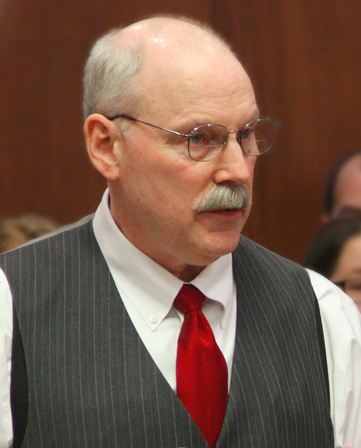THE PROBLEM WITH CANDIDATE KELLY MERRICK
By ART CHANCE
SENIOR CONTRIBUTOR
False flag. Flag of convenience. The terms are from an old maritime vocabulary.
In the days of pirates, privateers, letters of marque and reprisal, and commerce raiding, ships often carried a flag, national ensign is the correct term, of a country other than the one they were registered in or their owners resided in.
If the British and Spanish were at war, it was a lot safer to be flying an American or Dutch flag than a British or Spanish flag.
Confederate commerce raiders during the Civil War all but drove the US flag off the seas; US flagged ships either remained in port or flew the flag of some other nation, usually Britain.
Admiral Raphael Semmes, captain of the CSS Alabama and a lawyer as well, and the biggest contributor to driving US flagged commerce off the high seas, would intercept ships that “looked American” but were flying some other flag and at gun point convene an admiralty court to determine the true nationality of the ship.
Even if it was obviously an American built ship, if the master could credibly show that it was really a neutral-owned ship, he shook the master’s hand and sent him on his way; if not, he captured the crew and passengers , claimed the ship as a prize, or burned it, usually the latter.
Flags of convenience long ago were a standard ploy for ships in dangerous places; they just flew the ensign of the nation less likely to cause them trouble as they sailed dangerous waters.
The only real rule was when they entered a port, they were supposed to fly their flag of registration; some did, some didn’t.
In modern times that has morphed into registering a ship in the country that has the easiest regulations and lowest taxes; just look at all the ships registered in Liberia, Panama, or the Bahamas, most of which have never seen those places.
OF RINOS AND POLITICS
The term RINO has no relationship to ships. RINO is the term invented by quasi-libertarians and self-styled “true conservatives” to describe Republicans with whom they disagree; Republican In Name Only.
I suppose there are some, but I prefer to describe them as wearing that “R” as a flag of convenience. Since the early 1980s there have only been a handful of districts in Alaska that you could get elected from with a “D” behind your name.
I’ve known and worked with a lot of elected and appointed officials from whom you couldn’t buy an intelligent conversation about policy and who had no real political foundation but flew that “R” flag because they could get through dangerous political waters flying that flag rather than another.
We can now try to relate this to today’s politics in Alaska. There are some figures in Republican politics whose fidelity to Republican Party principles I would question. The Democrats did us the favor of making some of them an attractive offer to strike their color of convenience and come to their true allegiance. We know who they are.
Then there is the union/Democrat plan to field candidates flying false flags. These are people who are rock-ribbed Democrats, but because of the political composition of the district couldn’t possibly win an election as a Democrat. There have been several of them, and a couple have been elected. The unions and Democrats have actively recruited them, financed them, and provided them with their organization and muscle – mostly illegally, but nothing is illegal if nobody enforces the law.
At least AFL-CIO’s Vince Beltrami, when he ran for the State Senate, made himself into some sort of Independent, Bill Walker style. Now they’ve increased the audacity; they’re running union/Democrat made-assets claiming to be “conservative Republicans.”

In Eagle River we have the wife of union man Joe Merrick, whose entire family income comes from the union, running in the Republican primary claiming to be a “conservative Republican.”
I’m sorry, but you cannot be the wife of a Laborers’ union business manager and be a “conservative Republican.”
[Read: Getting the band back together: Musk Ox Coalition gets labor money]
Trade unionists have hating Republicans in their genes. Two drinks and a few minutes’ conversation with any old union hand about the Taft-Hartley Amendments to the National Labor Relations Act will have tears in the union guy’s eyes and a rant about the evil Republicans – and that grudge goes back to 1948.
Unions, like law firms, will designate some of their staff to be Democrats and some Republicans. You didn’t see it much in the rest of the state, but in Juneau you knew the designated Republicans in a union just as you knew the designated Republicans and Democrats in a law firm.
Kelly Merrick is flying a false flag; she’s no more a “conservative Republican” than I’m a Bernie Sanders-supporting millennial. She is one of Vince Beltrami’s false flag Republicans recruited to run in Republican districts and then caucus with the Democrats.
The people of Eagle River deserve better than this exercise in cynical politics.
Art Chance is a retired Director of Labor Relations for the State of Alaska, formerly of Juneau and now living in Anchorage. He is the author of the book, “Red on Blue, Establishing a Republican Governance,” available at Amazon. Chance coined the phrase “hermaphrodite administration” to describe a governor who is simultaneously a Republican and a Democrat. This was a grave insult to hermaphrodites, but he has not apologized.















